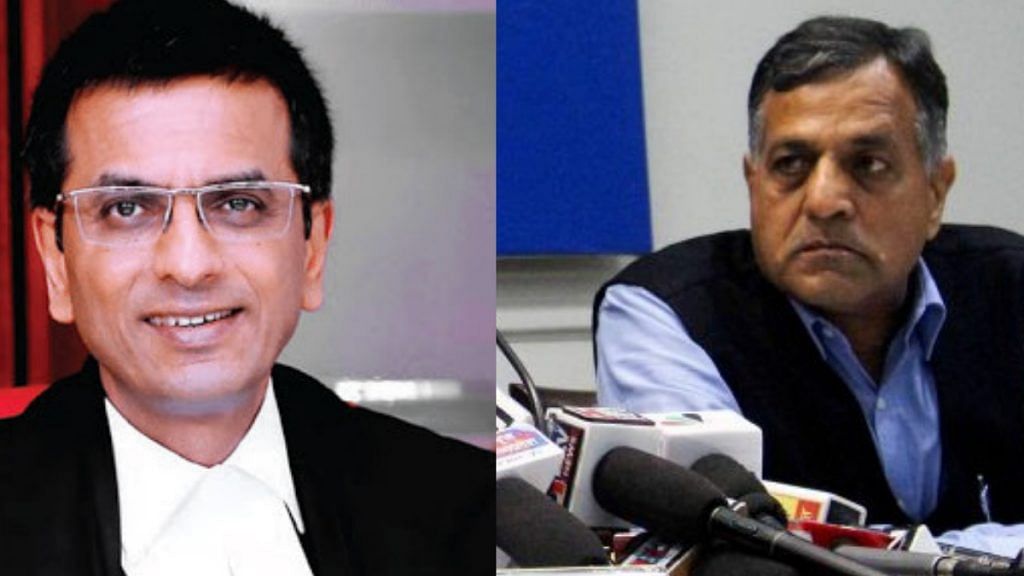For those despairing at the unravelling of India’s once-proud institutions, recent actions by a couple of individuals holding high constitutional office provide some relief, bordering on hope even.
An Election Commissioner, Ashok Lavasa, disagreed with his two other counterparts who first ignored, then delayed and finally exonerated Prime Minister Narendra Modi against allegations of violating the legally non-enforceable model code of conduct.
In another case, a Supreme Court judge, Justice D.Y. Chandrachud, voiced his disagreement with the manner in which the highest court in the country was handling an inquiry into allegations of sexual harassment against the sitting Chief Justice of India – Ranjan Gogoi.
In the event, both Lavasa and Justice Chandrachud failed to make a difference to outcomes, as the Election Commission and the Supreme Court’s in-house panel dismissed the respective complaints against Prime Minister Modi and CJI Gogoi. Yet, the fact that they expressed their dissenting opinions at all is worth something. As a rustic Chinese proverb goes, if you pardon my translation, “when there are no fish in the river, even a tiny shrimp is a big deal”.
Also read: What makes Justice D.Y. Chandrachud the new ‘rock star’ of the Indian judiciary
Recording a dissenting opinion in government — at any level — is not easy business. Having to disagree with the majority of your peers is stressful. Worse, if the disagreement places you on the wrong side of those in power, you might end up in a departmental backwater or face retribution that can end your career. If, on the other hand, you go against popular opinion, you risk being ostracised by the very people whose interests you sought to protect. Since the dissenting opinion is the one that does not see the light of day, the dissenter pays a huge price merely to make a point.
Lavasa is in line to become the next Chief Election Commissioner and Justice Chandrachud a future Chief Justice of India. While difficult, it is possible for a vindictive government or chief justice to damage their prospects.
That’s what happened to Justice Hans Raj Khanna after he delivered a dissenting judgement during the Emergency, disagreeing with four of his counterparts, rejecting the Indira Gandhi government’s contention and holding that “detention without trial is an anathema to all those who love personal liberty”. When he delivered the judgment, he was tipped to be the next Chief Justice of India, but the Indira Gandhi government superseded him.
As he writes in his autobiography, Justice Khanna knew that his judgment would cost him the Chief Justice-ship. So, what made him do it? He quotes Charles Evans Hughes, a former Chief Justice of the US Supreme Court, in saying that dissent is important because it is “an appeal to the brooding spirit of the law, to the intelligence of a future day, when a later decision may possibly correct the error into which the dissenting judge believes the court to have been betrayed”.
Also read: SC judges & EC officials must dissent but not harm institutions’ repute: Ex-IAS officer
As far as “appeals to the intelligence of a future day” go, there is none as spectacular as economist B.R. Shenoy’s dissent against the Second Five Year Plan, against nationalisation and against government intervention in businesses. From the 1950s till his death in 1978, he was a lone voice against the economic orthodoxy of the era, arguing for free markets, liberalisation and deregulation when there was near-religious fervour for the state to run the economy.
So hostile was the intellectual and public environment at the time that pro-market economists such as Jagdish Bhagwati and T.N. Srinivasan had to leave the country. Shenoy stayed. But it was not until the reforms of 1991 that India adopted his ideas, reluctantly and grudgingly. Then too, it was not until the early-2000s that market capitalism became a respectable position to hold in polite company.
The prevailing wisdom among economists is that institutions are important for growth and development. Political scientists consider institutions as vital to the protection of individual liberty, by dispersing power, constraining it by rules and subjecting it to checks and balances. Pick a book on good governance and you’ll find chapters upon chapters on creating and strengthening institutions.
Also read: Under Modi regime, the Election Commission needs the spine of former CEC T.N. Seshan
That’s all very well until you realise that institutions consist of individuals. As Ambedkar pointed out “however good a Constitution may be, it is sure to turn out bad because those who are called to work it, happen to be a bad lot. However bad a Constitution may be, it may turn out to be good if those who are called to work it, happen to be a good lot. The working of a Constitution does not depend wholly upon the nature of the Constitution. The Constitution can provide only the organs of State such as the Legislature, the Executive and the Judiciary. The factors on which the working of those organs of the State depend are the people and the political parties they will set up as their instruments to carry out their wishes and their politics”
Commenting on the meltdown of the CBI’s credibility last year, I had argued that dharma enjoins individuals to act in ways that hold the institution together. When this dharma is neglected, institutions weaken, lose credibility and ultimately die. Election Commissioner Lavasa and Justice Chandrachud have upheld their dharma, perhaps at a cost to themselves. They remind all holders of constitutional office, civil servants and uniformed personnel, of what is possible and what is expected of them.
The author is the director of the Takshashila Institution, an independent centre for research and education in public policy. Views are personal.
